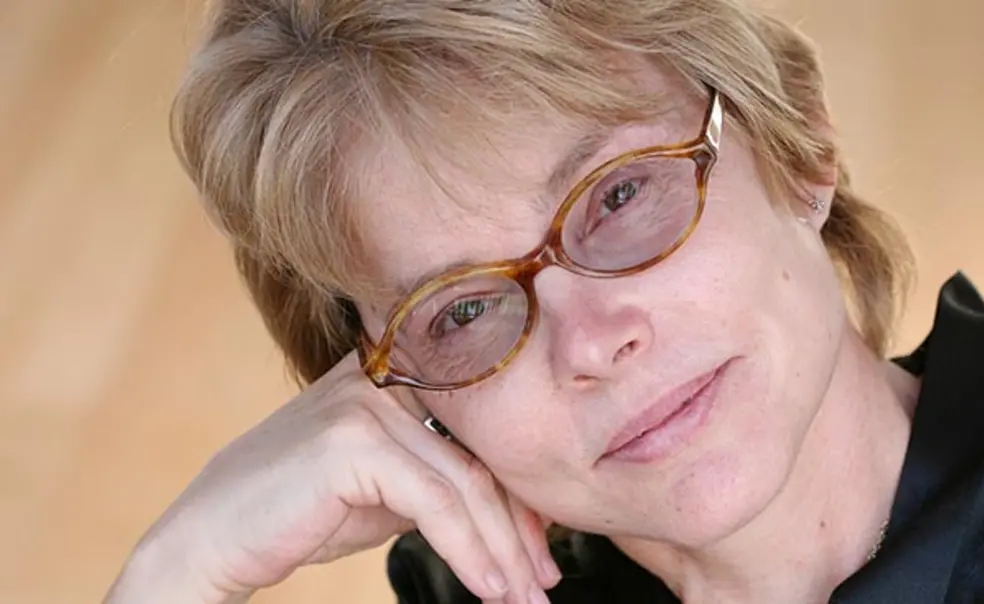Neurologist Dawn McGuire ’76 Captures Veterans’ Stories in Poetry
At the San Francisco clinic she founded, neurologist Dawn McGuire ’76 fills in gaps for veterans who need services that require a long wait time or are not available at Veterans Administration (VA) hospitals. She only gets paid if her clients have health insurance. If they don’t, she waives the fees.
McGuire started working with veterans in the 1980s while doing her medical residency at a VA hospital in San Francisco. “Immediately I was aware of the interface of the wounded warrior and substance issues,” she says of the formative experience. Since then, she has worked with veterans in various settings and conducted research on traumatic brain injury, “the signature injury of the Iraq and Afghanistan wars.”
McGuire’s work with injured veterans has been so powerful for her that she began writing and publishing poetry about their struggles. Her second book of poetry, American Dream with Exit Wound, was released earlier this month. It follows The Aphasia Café, a 2013 collection that won a Next Generation Indie Book Award.
In American Dream with Exit Wound, McGuire’s storytelling shines through. Her poetry weaves together references to classical mythology and literature with the terminology of her profession. In the first of three sections, “Hazardous Materials,” McGuire addresses the wounds, both visible and invisible, of soldiers who have returned from war. The book’s title poem, included in this section, imagines Achilles as a “junkie” and is told from the perspective of his lover, who witnesses him shooting up:
The sting is brief
endurable
And all that is unendurable
melts into air
McGuire first delved into poetry while at Princeton, where she took “every poetry class and tutorial that I could.” The physician adds with an ironic chuckle, “I can remember my freshman year saying like a little punk that I would never waste my liberal-arts education on pre-med.”
In McGuire’s senior year she first met the renowned poet Galway Kinnell, ’48, who would become a lifelong mentor, but McGuire didn’t write poetry again for more than 10 years after Princeton. She continued her studies in other fields, embarking on a master’s in divinity at Union Theological Seminary in New York City, partly because of one particular scholar: fellow Princetonian Cornel West *80, a leading voice on the topics of race and injustice. McGuire, having grown up in one of the poorest regions of the country, Appalachian Kentucky, felt drawn to the seminary’s mission of social justice.
As a seminarian, working part-time as a research associate in medical ethics at Columbia University, McGuire was struck by the topic she was investigating — how to bring more compassionate people into the field of medicine. What better way to address this pressing issue, McGuire realized, than to be part of the solution.
“It was sudden and astonishing,” McGuire says. “I realized that I wanted to become a doctor and that probably had been a suppressed wish for a long time.”
She graduated from Columbia’s College of Physicians and Surgeons with an M.D. in 1987, and from there went on to post-graduate training and a medical residency in neurology at the University of California, San Francisco. That was when she first encountered veterans, and the poetry began to flow.
“I found a voice again,” McGuire explains. “I think it found me in some of those kind of incremental ways - phrases would come to me, like they nailed an experience, so I had scads of Post-it notes that began to accumulate.”
She took those notes and enrolled during her summer break in the Squaw Valley Community of Writers in the Sierra Nevada mountains. There, she was reunited with Kinnell, who was the director of the organization at the time. She worked with him for several summers and he continued to be a big influence on her development as a poet. Kinnell died in 2014.
For McGuire, poetry has been an expression of her commitment to service as well as an extension of the therapy she provides.
“I write so that I can try and cross the gap between my patients’ lives and my own life,” she explains. “I can imagine their world in ways that I can enter in, and we sort of inhabit this third space — a space of safety and trust that can break their silence or offer them a way to feel they’re really communicating where pain has interrupted or destroyed their ability to articulate what they’re going through.”










No responses yet